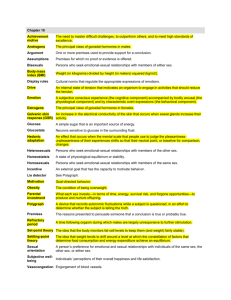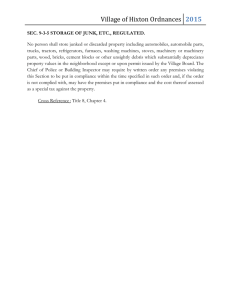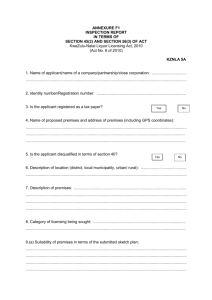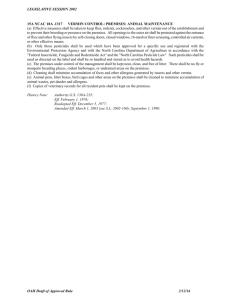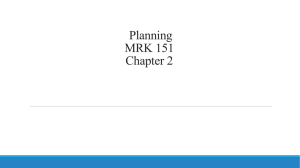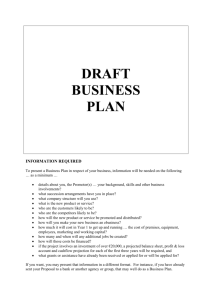YOUTH LEGAL CENTRE Drug Premises 1 Introduction
advertisement
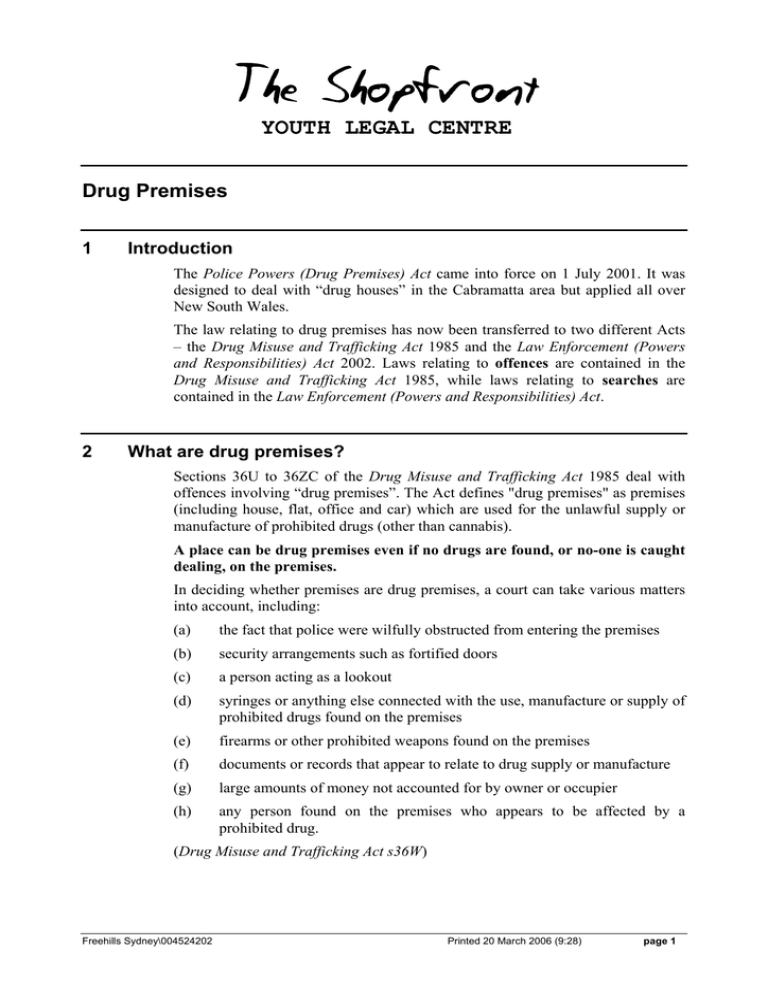
YOUTH LEGAL CENTRE Drug Premises 1 Introduction The Police Powers (Drug Premises) Act came into force on 1 July 2001. It was designed to deal with “drug houses” in the Cabramatta area but applied all over New South Wales. The law relating to drug premises has now been transferred to two different Acts – the Drug Misuse and Trafficking Act 1985 and the Law Enforcement (Powers and Responsibilities) Act 2002. Laws relating to offences are contained in the Drug Misuse and Trafficking Act 1985, while laws relating to searches are contained in the Law Enforcement (Powers and Responsibilities) Act. 2 What are drug premises? Sections 36U to 36ZC of the Drug Misuse and Trafficking Act 1985 deal with offences involving “drug premises”. The Act defines "drug premises" as premises (including house, flat, office and car) which are used for the unlawful supply or manufacture of prohibited drugs (other than cannabis). A place can be drug premises even if no drugs are found, or no-one is caught dealing, on the premises. In deciding whether premises are drug premises, a court can take various matters into account, including: (a) the fact that police were wilfully obstructed from entering the premises (b) security arrangements such as fortified doors (c) a person acting as a lookout (d) syringes or anything else connected with the use, manufacture or supply of prohibited drugs found on the premises (e) firearms or other prohibited weapons found on the premises (f) documents or records that appear to relate to drug supply or manufacture (g) large amounts of money not accounted for by owner or occupier (h) any person found on the premises who appears to be affected by a prohibited drug. (Drug Misuse and Trafficking Act s36W) Freehills Sydney\004524202 Printed 20 March 2006 (9:28) page 1 Drug Premises 3 Search warrants Police can get a warrant to enter and search suspected drug premises (Law Enforcement (Powers and Responsibilities) Act s140). It is an offence to block entry or otherwise obstruct the execution of the search warrant. The maximum penalty is a fine of 50 penalty units ($5,500) or twelve months' imprisonment or both. It is also an offence for a person not to give police their name and address on request. The maximum penalty is a fine of 50 penalty units ($5,500) (Law Enforcement (Powers and Responsibilities) Act s143). Police may seize anything found on the premises that may be connected with an offence. The Law Enforcement (Powers and Responsibilities) Act s142 specifies such things as drugs, syringes, firearms, and money. The police would also have power to seize business records, computers, fortified doors, etc, if they believe they would provide evidence of an offence. 4 Offences in Drug Misuse & Trafficking Act A person can be guilty of one of the following offences even if no drugs are found on the person or the premises. 4.1 Being upon drug premises (Drug Misuse and Trafficking Act s36X) A person caught in, entering or leaving drug premises is guilty of an offence unless the person can prove that he or she has a lawful excuse to be there. Firstly, the court must be satisfied that the premises are drug premises. Then, the defendant has to prove that he or she had a lawful excuse to be there. This reverse onus of proof is unusual in criminal law - for most offences, the onus is on the prosecution to prove each element of the offence beyond reasonable doubt. Examples of lawful excuses could be that the person: lives there, was visiting a family member who lives there, didn't know the premises were being used for drug activity, was being held there against their will, etc. 4.2 Organising drug premises (Drug Misuse and Trafficking Act s36Z) It is an offence to organise, or contribute to the organisation of, drug premises. This includes acting as a lookout, etc. The person is not guilty if he or she can prove that he or she didn't know the premises were being used for drug activity. 4.3 Knowingly allowing premises to be used as drug premises (Drug Misuse and Trafficking Act s36Y) An owner or occupier (which would include a tenant) of premises is guilty of an offence if he or she knowingly allows the premises to be used as drug premises. Freehills Sydney\004524202 Printed 20 March 2006 (9:28) page 2 Drug Premises 4.4 Penalties The maximum penalties for any of the above offences are: For a first offence, a fine of 50 penalty units ($5,500) or twelve months' imprisonment or both. For a second or subsequent offence, the maximum penalty is a fine of 500 penalty units ($55,000) or five years' imprisonment or both. The Shopfront Youth Legal Centre Updated February 2006 Shopfront Youth Legal Centre 356 Victoria Street Darlinghurst NSW 2010 Tel: 02 9360 1847 Fax: 02 9331 3287 www.theshopfront.org shopfront@freehills.com The Shopfront Youth Legal Centre is a service provided by Freehills, in association with Mission Australia’s Sydney City Mission and the Salvation Army. This document was last updated in February 2006 and to the best of our knowledge is an accurate summary of the law in New South Wales at that time. This document provides a summary only of the subject matter covered, without the assumption of a duty of care by Freehills. The summary should not be relied on as a substitute for legal or other professional advice. This document may be photocopied and distributed, or forwarded by email, on the condition that the document is reproduced in its entirety and no fee is charged for its distribution. Freehills Sydney\004524202 Printed 20 March 2006 (9:28) page 3

